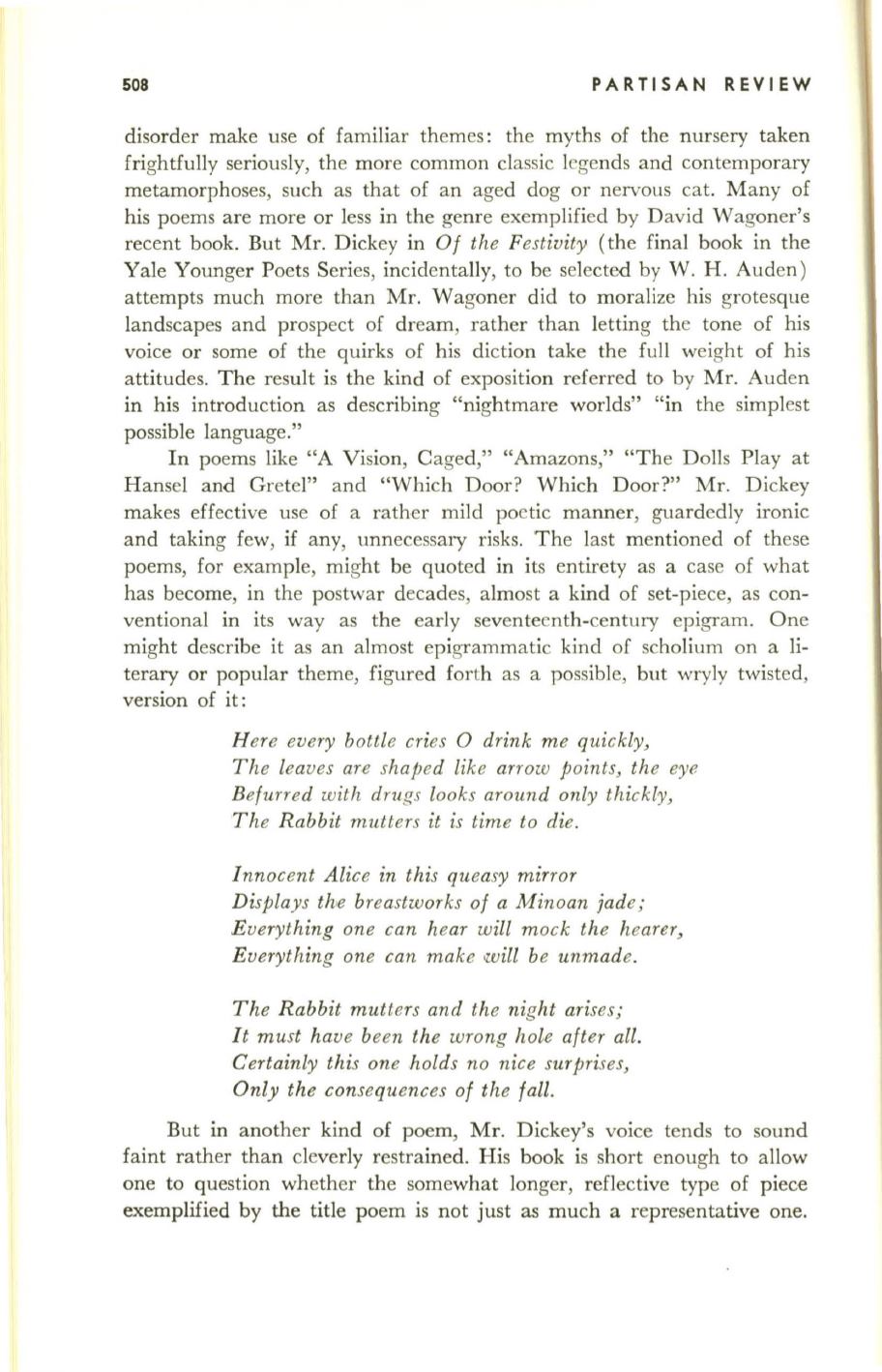
508
PARTISAN REVIEW
disorder make use of familiar themes : the myths of the nursery taken
frightfully seriously, the more common classic legends and contemporary
metamorphoses, such as that of an aged dog or nervous cat. Many of
his poems are more or less in the genre exemplified by David Wagoner's
recent book. But Mr. Dickey in
Of the Festivity
(the final book in the
Yale Younger Poets Series, incidentally, to be selected by W. H. Auden)
attempts much more than Mr. Wagoner did to moralize his grotesque
landscapes and prospect of dream, rather than letting the tone of his
voice or some of the quirks of his diction take the full weight of his
attitudes. The result is the kind of exposition referred to by Mr. Auden
in his introduction as describing "nightmare worlds" "in the simplest
possible language."
In poems like "A Vision, Caged," "Amazons," "The Dolls Play at
Hansel and Gretel" and "Which Door? Which Door?" Mr. Dickey
makes effective use of a rather mild poetic manner, guardedly ironic
and taking few, if any, unnecessary risks. The last mentioned of these
poems, for example, might be quoted in its entirety as a case of what
has become, in the postwar decades, almost a kind of set-piece, as con–
ventional in its way as the early seventeenth-century epigram. One
might describe it as an almost epigrammatic kind of scholium on a li–
terary or popular theme, figured forth as a possible, but wryly twisted,
version of it :
H ere every bottle cries
0
drink me quickly,
The leaves are shaped like arrow points, the eye
Befurr ed with drugs looks around only thickly,
The Rabbit mutters it is time to die.
Innocent Alice in this queasy mirror
Displays th,e breastworks of a Minoan jade;
Everything one can hear will mock the hearer,
Everything one can make w ill be unmade.
The Rabbit mutters and the night arises;
It must have been the wrong hole after all.
Certainly this one holds no nice surprises,
Only the consequences of the fall.
But in another kind of poem, Mr. Dickey's voice tends to sound
faint rather than cleverly restrained. His book is short enough to allow
one to question whether the somewhat longer, reflective type of piece
exemplified by the title poem is not just as much a representative one.


